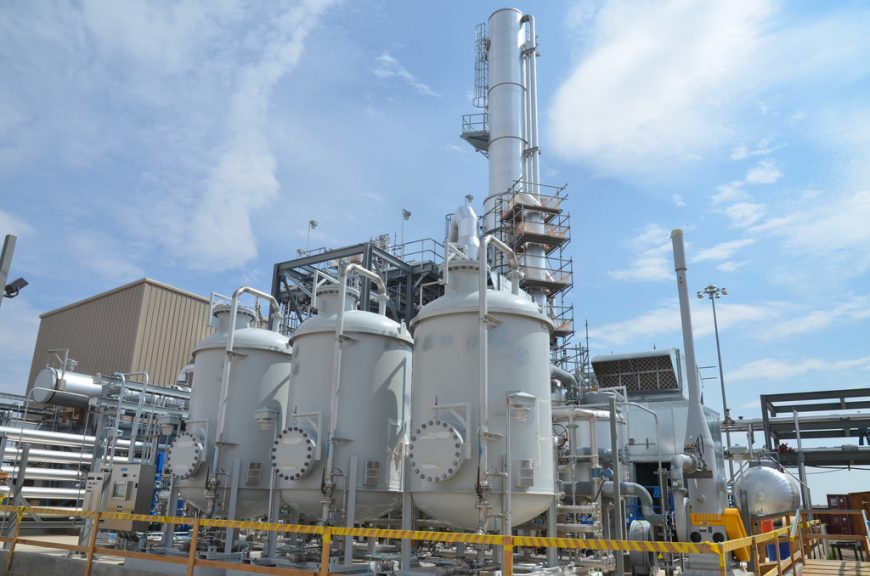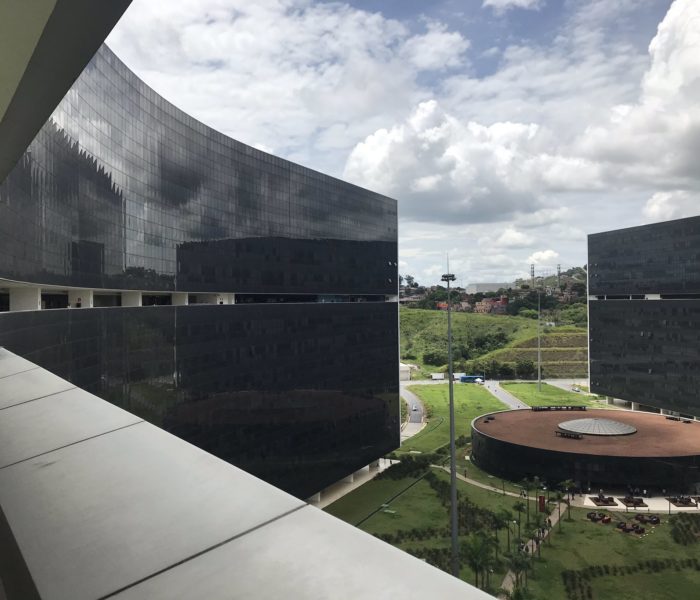Implementation of State Carbo chemical Complex Rio Grande do Sul
A new stage for the creation of a carbo chemical chain in Rio Grande do Sul is about to be fulfilled. The state government is preparing the text of a bill to organize this activity. The matter will be sent to the Legislative Assembly in the last semester of the year.
The State Secretary for Mines and Energy, Artur Lemos Júnior, said that this is a brief project, that will fulfill the requirement of the State Constitution and will legally show the interest of the State in developing this area, giving legal security to the entrepreneurs. The regulations will address issues such as the definition of the location in which the actions related to the carbo chemistry can be practiced, indicate the requirements regarding environmental licensing, and indicating the public policies in the State that may contribute to the sector, among other points.
Lemos says it is necessary to present the subject with as much information as possible for the citizens. The Secretary points out that it is necessary to care about environmental issues, but it is not possible to stagnate the economic sector. “What we defend is the sustainable growth from an economic and environmental point of view,” he says. Lemos reminds that carbo chemistry has a lower environmental impact than the generation of electric energy with the use of the mineral, because in that process the CO2 gas is already captured, being an input used by the production of the carbo chemical chain itself. Besides gas, coal can be used for the production of urea, ammonia (both used in the production of fertilizers for agriculture) and methanol (used in the biodiesel industry or as a chemical additive in the furniture industry).
Among the actions already started in this area is the partnership formed between the Rio Grande do Sul Copelmi Group and South Korea’s Posco, which intends to create a carbo chemical complex in the state through coal gasification. The investment in the project’s implementation is estimated at approximately US $ 1.7 billion, for a generation of about 2 million cubic meters of gas per day. The mineral that will be used in the gasification will be obtained from the surroundings of the municipalities of Eldorado do Sul and Charqueadas. The demand for coal will be of about 3.5 million tons per year and the beginning of the operation is expected to 2021. The Government of the State, Posco and Copelmi signed a protocol of intentions in 2014 that defines fiscal incentives (which include exemptions from taxes on the acquisition of equipment) for the development of the project.
Copelmi is optimistic with the Chinese support to the coal gasification
It is interested in supplying coal for a huge plant in Charqueadas that may have Japanese technology and may be financed by Japanese investors. Copelmi also works to make feasible the use of the fossil fuel in the region of Baixo Jacuí to the production of fertilizers and methanol, on the Carbochemical Complex.
Roberto Faria, director for new business of the mining company from Rio Grande do Sul, traveled abroad and participated in two important agendas for the project at the beginning of the month. First, he joined the state’s government delegation to Japan on the day of the coal agenda, with a visit to the Hitachinaka Power Plant, and had meetings with Japanese energy companies.
After that he went to China with the the State Secretary for Mines and Energy, Artur Lemos. The Copelmi executive returned optimistic about the possibility of the Chinese joining the investment in the Carbo chemical Complex, which already has the Rio Grande do Sul company with a minority stake, and South Korea’s Posco, as a 30% investor in the project. “We planted several seeds on this trip to China. I am optimistic, as it has become clear to us that coal gasification is a long-term solution for China, which continues to grow, and technologies are improving, costs are reduced and new products are marketed”, reports Faria.
The executive notes that there is “an excess of liquidity in the Chinese financial market and that there is capital seeking good investment projects”. For the enterprise to start working, the regulatory-legislative framework and issues such as the dollarization of contracts for the sale of gas would be missing.
“The financial investor wants to understand that the conditions exist before he makes the decision. So, having adequate environmental and fiscal conditions, established in law, gives greater comfort that it will not be changed during the establishment of the project, reducing the risk and enabling lower internal rates of return, increasing project competitiveness”, mentioned Faria.
The forecast is that the State Carbo chemical Complex is expected to be launched by 2021. “We are discussing new industries that will be installed for the next 30 years. In this way, adequate planning is necessary to create the best use of coal with the best result for the community”, says Faria.
Source: Jornal do Comércio
For more information on Brazil, doing business in Brazil or more specifically on this Carbo Chemical project Energy market, you can contact NBSO Brazil by e-mail at info@nbso-brazil.com.br










